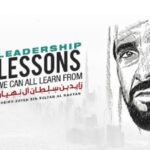
Islam is the religion of knowledge. In Islam, knowledge comes before action; there can be no action without knowledge, as Allaah says (interpretation of the meaning):
“So know (O Muhammad) that Laa ilaaha ill-Allâh (none has the right to be worshipped but Allâh), and ask forgiveness for your sin, and also for (the sin of) believing men and believing women”
[Muhammad 47:19]
Allaah warns every Muslim against speaking without knowledge, as He says (interpretation of the meaning):
“And follow not (O man, i.e., say not, or do not, or witness not) that of which you have no knowledge. Verily, the hearing, and the sight, and the heart of each of those ones will be questioned (by Allâh)”
[al-Israa’ 17:36]
Emphasizing the status of knowledge and the scholars, Allaah calls upon the scholars to bear witness to His Oneness, as He says (interpretation of the meaning):
“Allâh bears witness that Lâ ilâha illa Huwa (none has the right to be worshipped but He), and the angels, and those having knowledge (also give this witness); (He always) maintains His creation in justice. Laa ilaaha illa Huwa (none has the right to be worshipped but He), the All‑Mighty, the All-Wise”
[Aal ‘Imraan 3:18]
Knowledge and fear of Allaah may be attained by knowing His signs and creation. The knowledgeable are those who know that, hence Allaah praises them by saying (interpretation of the meaning):
“It is only those who have knowledge among His slaves that fear Allâh”
[Faatir 35:28]
No other religion or institution gives as much importance to knowledge as the religion of Islam. The religion has made seeking knowledge incumbent upon all Muslims and has deemed that not doing so as a sin. The Prophet, may the mercy and blessings of Allah be upon him, said in an authentic narration (hadeeth):
“Seeking knowledge is an obligation upon every Muslim.”
(Al-Tirmidhi)
This obligation is not limited to a certain sex or class, but rather it is as much as an obligation upon women as it is for men, the young and the old, and the poor and the rich. Allah has raised the ranks and status of those who have knowledge, and has praised them in many places in the Quran. Allah says:
“Allah raises of those who believe and those who have been given knowledge many levels.”
(Quran 58:11)
Seeking knowledhe about Islam is important so that one may worship Allah correctly, and do deeds which please Allah and avoid what angers Him. If one does not seek knowledge, they will live their entire lives doing things which might actually oppose the teachings of the religion, causing him to earn the punishment of Allah instead of His forgiveness.

What Should I Learn as a New Muslim?
So the question arises, if it is an obligation to seek knowledge of the religion, and the fields of knowledge within the religion are so vast, what type of knowledge is obligatory to seek as a New Muslim? Imam Ahmed bin Hanbal, a great scholar of Islam, answered that it is obligatory for every Muslim individual to seek that type of knowledge which will allow him to practice his religion properly. The following are examples:
1) Islamic beliefs. This is by far the most important aspect of the religion a person must learn, for through this aspect a person actually becomes Muslim. The first thirteen years of the Prophet Muhammad’s call was devoted to correcting people’s beliefs about Allah, emphasizing that no worship was to be directed to any but Him Alone, while only a few of the other commandments were revealed at that time.
2) The knowledge of the obligatory aspects of worship. As we know, Allah has commanded Muslims to perform certain acts of worship. Many of these acts are obligatory and, in turn, one must know how to perform them. For example, Allah has obligated upon us to pray a minimum of five times per day, so it becomes obligatory upon us to know how to pray properly, bearing in mind what is permissible and impermissible for us to do during the Prayer. Also, as one of the conditions of the Prayer is to purify oneself, a person must know how to do so. This also holds true for the rest of the commandments of Allah.
3) Knowing what is permissible and impermissible in daily life. By the Mercy of Allah, He has encouraged us to enjoy a countless number of bounties which He created. At the same time, He has also warned us from certain things due to the physical or spiritual harm resulting from their indulgence. It then becomes obligatory for us to learn these aspects of the religion so that we may not intentionally commit or accidentally fall into these impermissible acts. An important note to mention is that New Muslim ensure they learn those rulings related to their field of work, whether it be medicine, trade, law, or any other field, in order that they carry out their work according to the guidelines of the religion.
4) Last but not least, a person must also learn how to purify their hearts and deeds from blameworthy traits. As a New Muslim one must know how to purify ones hearts from the love of wealth, status, and fame, and how to make one’s love soleley for Allah alone. One must also learn the lofty manners taught to us by the religion of Islam, and try to pattern our lives according to Prophet Muhammad peace be upon him.

Seeking Knowledge requires patience
Learning knowledge is something which must be done, but it need not be done so all at once, as the great scholar az-Zuhri said, “Whoever seeks knowledge in one go, it will leave him at one go. Rather, knowledge is only sought through the passing of nights and days.” One should make a firm intention, and have patience throughout their search. Some aspects may be easy, but some might be harder to achieve. Bear in mind that when one tries to learn while it is hard for him, they will receive a double reward from Allah due to the effort they spent in seeking it, and Allah’s bounty is indeed limitless. The Prophet said:
“Whoever reads the Quran and stutters while reading, due to its difficulty, will receive a double reward.”
(Saheeh Muslim)
There are many ways to learn the religion, the best being directly learning it from a knowledgeable and righteous Scholar who is known for having the correct and moderate belief. But as they are not always available, one must look for other ways, such as good books, cassettes, and websites to fulfill this goal under the supervision of trust worthy individuals or Islamic center. Do not try to tackle those issues which require much study in the beginning; rather, prioritize the material of study in order of importance.
If you are a new Muslim based in Dubai we encourage you to join our classes at the Islamic Information Center.

Fruits of Knowledge
To conclude, seeking knowledge is an act of worship that requires you to keep your intention sincerely for Allah alone and none else, seeking His Pleasure and reward. Do not seek knowledge to show off or compete with others, or to enliven one’s gatherings. The Prophet said:
“Whoever seeks that knowledge which is (usually) sought to seek the pleasure of Allah in order to gain some worldly benefit, he will not sense the scent of Paradise on the Day of Judgment.”
(Ibn Maajah)
Also know that knowledge is of no importance if one does not reap its fruits, which is to practice the religion of Islam as Allah loves. Right knowledge will keep you away from all types of innovation as well as extremism in the religion. So one should try their level best to seek knowledge about Islam to the best of their abilities. We conclude with the beautiful saying of our beloved Prophet Muhamaad peace be upon him:
“Whoever treads a path in seeking knowledge, Allah will make easy for him the path to Paradise.”
(Al-Tirmidthi)




